Health Benefits of Shitake Mushrooms
GENERAL INFORMATION ON SHIITAKE MUSHROOMS
The two most popular mushrooms in the world are the common button mushroom (Agaricus species) and the shiitake or black forest mushroom (Lentinus edodes). The shiitake, meaning "mushroom of the shii or oak tree" in Japanese, is highly prized in the Orient for its flavor and reputed medicinal value.
Shiitake are native to China but have been grown in both Japan and China since prehistoric times. They have been cultivated for over 1000 years; the first written record of shiitake cultivation can be traced to Wu Sang Kwuang, born during the Song Dynasty (AD 960–1127). However, some documents record the uncultivated mushroom being eaten as early as AD 199. During the Ming Dynasty (AD 1368–1644), physician Wu Juei wrote that the mushroom could be used not only as a food but was taken as a remedy for upper respiratory diseases, poor blood circulation, liver trouble, exhaustion and weakness, and to boost qi, or life energy. It was also believed to prevent premature aging.
HEALTH BENEFITS OF SHIITAKE MUSHROOMS
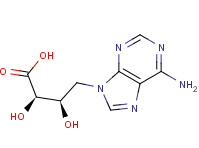
1) Significantly Lowers Cholesterol -- Eritadenine
Several animal studies conducted over the last ten years have shown that another active component in shiitake mushrooms called eritadenine lowers cholesterol levels. Eritadenine supplementation (50 mg/kg diet) significantly decreased the plasma total cholesterol concentration, irrespective of dietary fat sources, and without change in the order of plasma cholesterol concentration among the fat groups(See Reference 9)
Note: Both L and D-Eritadenine (DEA) are inhibitors of S-adenosylhomocysteine (AdoHcy) hydrolase.(See full text).. Could there be possible anti-viral properties here?
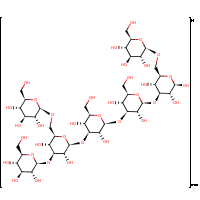
2) Anti-Tumor Properties -- Lentinan
Shiitake mushrooms have been researched for their medicinal benefits, most notably their anti-tumor properties in laboratory mice. These studies have also identified the polysaccharide lentinan, a (1-3) ß-D-glucan, as the active compound responsible for the anti-tumor effects.[1].Lentinan is an approved drug in Japan. It is generally administered by injection and has been used as an agent to prolong survival of patients in conventional cancer therapy as well as in AIDS research. Lentinan is one of the host-mediated anticancer drugs which has been shown to affect host defense immune systems.[10]
The speculative anticancer properties of shitake mushrooms are thought to be linked to upregulation of the immune system. An in vitro study supports this idea, by showing a chemical in shittake could activate various components of the immune system, including Nk cells. T cells, macrophages, and interleukin-6.[2] In an experiment with human colon cancer cells, shiitake exhibited strong anti-cancer properties.[3. ] Immune system enhancement may not be the only possible anticancer mechanism of shiitake. An in vitro study revealed shittake could induce selective apoptosis in murine melanoma cells.[4] Extracts from shiitake mushrooms (such as ichtyol) have also been researched for many other immunological benefits, ranging from anti-viral properties to possible treatments for severe allergies, as well as arthritis.[5]
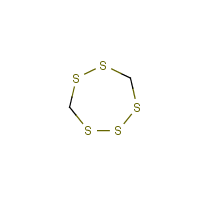
3) Inhibits Platelet Aggregation-- Promising Treatment for Thrombosis-- Lenthionine
Lenthionine, a key flavour compound of shiitake, also inhibits platelet aggregation, so it is a promising treatment for thrombosis.[6] Active Hexose Correlated Compound (AHCC) is an alpha glucan rich nutritional supplement produced from the mycelia of Lentinula edodes of the basidiomycete family of mushrooms.[7] The immunological effect of AHCC has been studied in a double-blind, placebo-controlled study with 21 healthy volunteers.[8] The AHCC group showed a significantly higher number of total dendritic cells compared with baseline, a significantly higher number of DC1 cells compared with baseline, a significantly higher number of DC2 cells compared with controls, and a significantly increased mixed-leukocyte reaction compared with controls. There was no significant difference in cytokine production, NK cell activity or other immune function parameters between the two groups. Shiitake are also one of a few known natural sources of vegan and kosher vitamin D (vitamin D2).
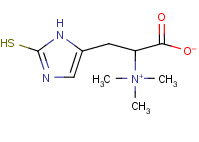
4) Antioxidant Properties --L-ergothioneine
L-ergothioneine, a powerful antioxidant, has also been discovered in shiitake mushrooms--containing roughly 13 mg per 3 oz serving. Shiitakes have 40x the amount of ergothioneine than wheat germ.
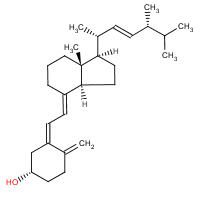
5) Source of Ergocalciferol--Vitamin D2
Shiitake mushrooms are also a source of Vitamin D. A single 100g serving of Shiitakes contain 96IU or 24% of you required daily intake of Vitamin D (based on a requirement of 400IU).
References
1 -- Kim H, Kacew S, Lee B (1999). "In vitro chemopreventive effects of plant polysaccharides (Aloe barbadensis miller, Lentinus edodes, Ganoderma lucidum and Coriolus versicolor)". Carcinogenesis 20 (8): 1637–40.
2 -- Yamamoto Y, Shirono H, Kono K, Ohashi Y. (Nov 1997), "Immunopotentiating activity of the water-soluble lignin rich fraction prepared from LEM--the extract of the solid culture medium of Lentinus edodes mycelia.", Biosci Biotechnol Biochem. 61 (11): 1909–12.
3 -- Ng ML, Yap AT (2002), "Inhibition of human colon carcinoma development by lentinan from shiitake mushrooms (Lentinus edodes).", J Altern Complement Med. 8 (5): 581–9.
4 -- Gu YH, Belury MA. (Mar 2005), "Selective induction of apoptosis in murine skin carcinoma cells (CH72) by an ethanol extract of Lentinula edodes.", Cancer Lett. 220 (1): 21–8.
5 -- Takehara M, Kuida K, Mori K (1979). "Antiviral activity of virus-like particles from Lentinus edodes (Shiitake)". Archives of Virology 59 (3): 269–74.
6 -- Shimada S, Komamura K, Kumagai H, Sakurai H (2004). "Inhibitory activity of shiitake flavor against platelet aggregation". Biofactors 22 (1-4): 177–9.
7 -- Spierings EL, Fujii H, Sun B et al. (2007). A Phase I study of the safety of the nutritional supplement, active hexose correlated compound, AHCC, in healthy volunteers. J Nutr Sci Vitamin5ol. 53:536-539.
8 -- Terakawa N, Matsui Y, Satoi S et al. (2008). Immunological effect of active hexose correlated compound (AHCC) in healthy volunteers: a double-blind, placebo-controlled study. Nutr Cancer. 60:643-651
9 --Dietary Eritadenine Modifies Plasma Phosphatidylcholine Molecular Species Profile in Rats Fed Different Types of Fat Manuscript received 20 May 1996. Initial reviews completed 24 June 1996. Revision accepted 14 November 1996. Kimio Sugiyama, Akihiro Yamakawa, Hirokazu Kawagishi, and Shigeru Saeki*-- Read Full Text
10 --Nakano H, Namatame K, Nemoto H, Motohashi H, Nishiyama K, Kumada K (1999). "A multi-institutional prospective study of lentinan in advanced gastric cancer patients with unresectable and recurrent diseases: effect on prolongation of survival and improvement of quality of life. Kanagawa Lentinan Research Group". Hepatogastroenterology 46 (28): 2662–8
Science of Cooking
See also:
- How can dried Shitake mushrooms be more flavorful than fresh mushrooms
- Health benefits of Lentils
- Adding Flavor by using Umami
- Artificial Sweeteners
- Science of Culinary Foams
- Food Thickening Agents
- What is Sous Vide Cooking
- What are Polysaccharides?
- Xanthan Gum
- Guar Gum vs. Locust Bean Gum
- Agar Molecular Properties in Cooking
- Pectin
- Science of Hydrocolloids in Cooking
Health Risks in Cooking
- What are Trans Fats?
- What is lactose intolerance?
- What is the difference between LDL and HDL?
- What are the different types of Omega-3 fatty acids?
- What is the difference between nitrates and nitrites?
- What is the difference between saturated and unsaturated fats?
- Why is Carbon Monoxide used in meat and fish?
- All about gluten sensitivity and issues with lectins